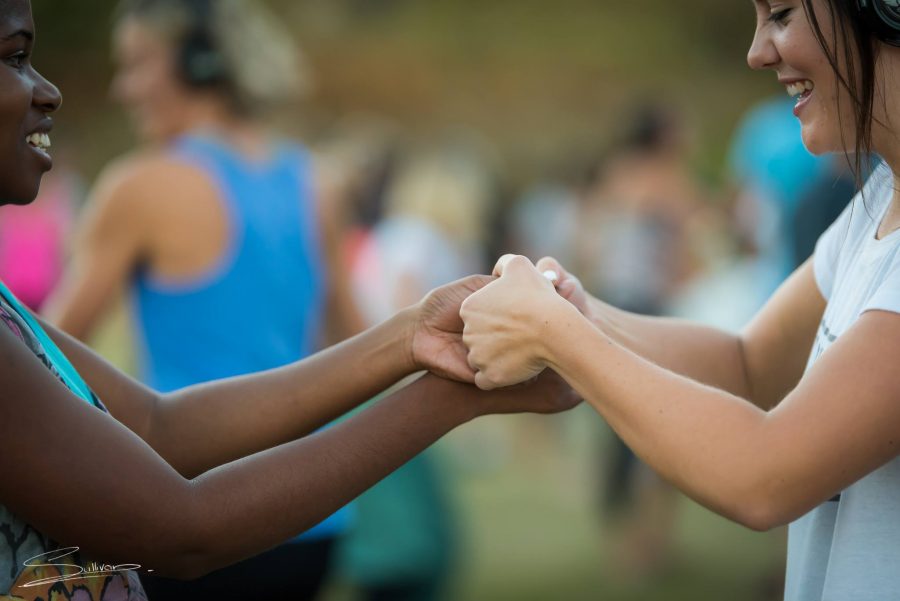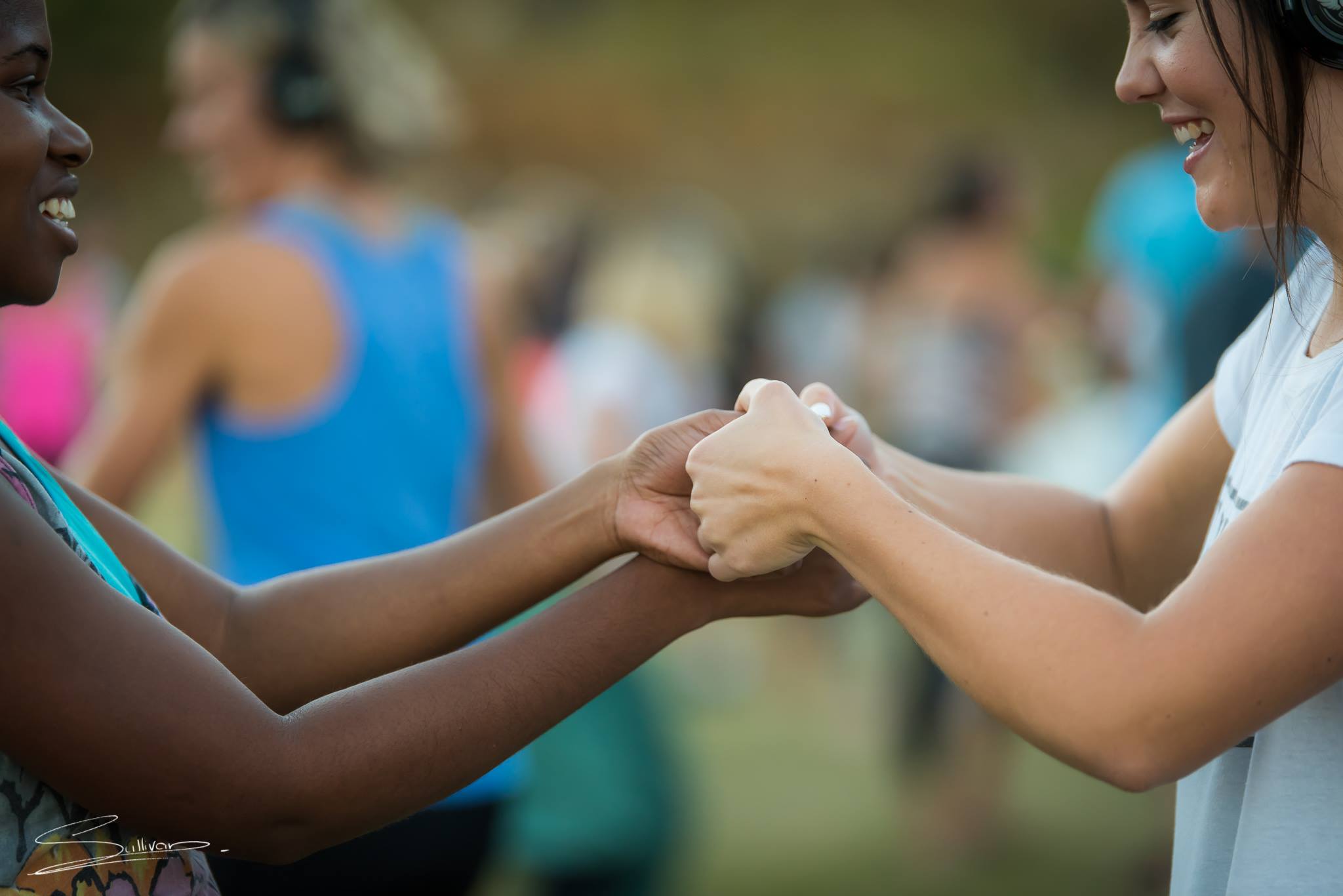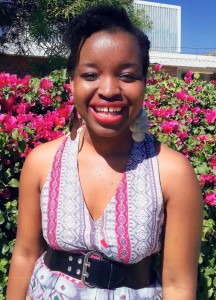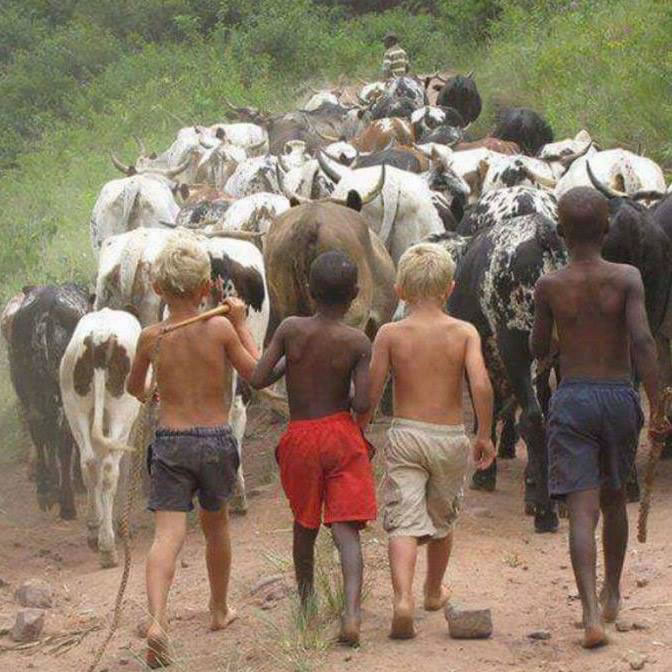
Response to 16 Things Black People Wish They Could Tell Their White Friends
Two years ago Zola Ndlovu – a lawyer, economist and writer – wrote 16 Things Black People wish they could explain to their White Friends. To celebrate the Day of Reconciliation – which was established to encourage unity and harmony amongst South Africa’s people – here’s Zola’s list again, with a response from a white South African woman […]

Two years ago Zola Ndlovu – a lawyer, economist and writer – wrote 16 Things Black People wish they could explain to their White Friends. To celebrate the Day of Reconciliation – which was established to encourage unity and harmony amongst South Africa’s people – here’s Zola’s list again, with a response from a white South African woman who chose to remain anonymous…

Zola wrote: Amongst fellow black people, we don’t feel the need to explain ourselves; we just ‘get’ each other, even if we’re from different cultural backgrounds. When you’re a black person amongst white people though, there seem to be a million bajillion things you have to explain about yourself and your life.
In the interests of promoting social understanding and togetherness, here’s a list of things that white people need to know about black people. Very importantly, not all black people are the same, so not all of these will apply equally.
Anonymous responded: Dear Zola, in response to your lovely article…
Firstly, what you said about “we don’t feel the need to explain ourselves etc” – well, that part goes for white people too. But that’s what’s great about your letter. You’ve opened up the door for us to each explain… and to talk… and to start to really ‘get’ each other.
So here are my responses which will hopefully shed a little more light…
1. ZOLA: ‘Bring and share’ parties are a white people thing.
If you’re going to organise a party then you should cater for it – it’s a basic principle of hospitality. The idea that I must cater for a party that you are hosting is completely foreign to me. Alas, because it’s your party, I will go with the flow and bring a pack of Doritos, the ones in a blue packet.
RESPONSE: Our Bring and Share Parties are about Sharing
When white South Africans hear about big black funerals and parties where hundreds of people are catered for, cows slaughtered and cooked, and great big pots of food prepared for the guests who pile their plates high – we are mystified as to how it’s all paid for, as most of us could never afford to throw that kind of party.
That’s why we do the Bring and Share. For smaller parties too. And besides sharing the costs, it also shares the work of preparing all the food.
And it’s where we taste each other’s food, and ask for the recipes. When we do smaller dinner parties at home, then we totally treat our guests (and if they want to bring a bottle, that’s a great gesture.).
Btw – Bring & Share is not how we always used to do it, and in fact when a South African friend moved to New Zealand over 10 years ago and was told to “bring a plate” to a dinner, she did just that – she took an empty plate thinking the host didn’t have enough! It’s a custom that’s developed out of necessity because of our tighter budgets and far-too-hectic lives…. but it’s one most of us have embraced with relief!
2. ZOLA: Underwear must be washed by hand, every day.
When you walk into my bathroom you will almost definitely find a few lacy numbers hanging on the rail. Don’t be alarmed. I was taught to wash my undies straight after a bath, you were taught to throw them in your laundry basket (it’s gross but I still love you).
RESPONSE: Handwashing Underwear
I was brought up the same way as you and my mother still does the same. But I think with modern times (and super-improved washing machines) this practice is becoming outdated… just like the practice of darning socks which my grandmother used to do. People are living with a lot less available time on their hands.
3. ZOLA: Closed guest lists don’t mean a thang to us; if I hear about it, I’m there!
Birthday parties, weddings, anniversaries and funerals are free for all. Relatives, friends, enemies, neighbours, people passing by are all welcome! It’s not weird at all when there are random strangers appearing in our wedding videos; it is part of the territory. A closed guest list is a sure way to offend a black person.
RESPONSE: Closed Guest Lists
I love your attitude, and I wish I could I have the same… but you’re right. It has been ingrained in me that anyone who arrives uninvited is in fact a “gatecrasher” and breaking the code of good conduct! That person would be asked to leave. White people would never dream of barging in on an ‘invitation only’ party unless going as a ‘plus 1’ (a partner of someone who was invited and is allowed to bring someone else). That said, for informal gatherings it’s okay to ask your host if you can bring friends. Bring and share helps a lot in these circumstances!
4. ZOLA: The words “gap year” don’t exist in our vocabulary.
There is no scenario where the words “gap year” can feature positively in a conversation between a black person and their mother, father or relatives. Telling your parents that you’re doing a gap year is telling them that you want to be unemployed for the rest of your life, period.
RESPONSE: Gap Year
This is not a general white thing. This is a Rich Family thing, and most white people could not afford it. I think people in the UK have been doing it forever but in South Africa it only started in fairly recent history (and maybe it’s the reason why Bring & Share began – as a way to cope with this added financial pressure!).
5. Don’t look surprised, disappointed or whisper behind your hand when black people pile their plates high.
Piling your plate high at an event is not gluttony; it’s wholly appropriate if the food is in abundance. We’re not being rude, we’re just being ourselves. Also, don’t laugh when we talk about taking leftovers home for breakfast tomorrow, we’re being serious.
Piled Plates
Plenty of white people do the same, piling their plates high with food… but we try to remain conscious that everybody needs to have some of the food, so we may go back for more after everybody has had some. We often send relatives or close friends home with plates and bowls of leftovers – that’s pretty normal.
6. Black people don’t do cats.
Don’t ask them why because they’ll look at you cross-eyed. We’re okay with you having pet cats but please, please do not expect us to cuddle, kiss or love them. In fact, black people don’t really do pets at all – dogs belong outside and are there as a matter of necessity; there’s no love lost between me and Spotty.
I did not know that Thing about Black People not liking Cats
White people generally like all animals (except for many Australians who tend to dislike cats). But yes, for white people Spotty is not just a dog – he is part of the family. It’s how we teach our kids to be kind to all living creatures, make bonds and learn about the circle of life.
7. Witchcraft is a big deal.
This is linked to the fact that black people don’t do cats. Witchcraft is real. As real as the fact that when a black woman is pregnant she doesn’t announce it, and everyone around her knows not to ask when she’s due. It’s linked to the fear that she will be bewitched if she reveals that kind of information.
Witchcraft
Yes, I think white people have the greatest respect for witchcraft – and some love it because it seems ‘primitive’ while others don’t get it because it seems primitive. I think we’ve all been in the country long enough to know not to mess with it!
8. Looking at someone in the eye is rude.
If I don’t look you in the eye, it’s because I’m showing you respect, not disrespect. Essentially, it’s the opposite of what you think. The younger generation of black folk don’t adhere to this rule much but older people think this is very important.
Not Looking Someone in the Eye
Yup, I had heard about that one, and have experienced it in the workplace many years ago, and in some Asian countries – but it seems to me very old school right now, and I didn’t know it was still important in the black culture. But if it is, as you say, we need to come up with a plan that works for both of us! Because otherwise I’m going to be offended because you don’t look me in the eye, and you’re going to be offended because I keep looking in your eyes… we need a solution. Definitely if we’re with each other’s parents we should do what they expect…
9. Black people can’t understand you any better when you talk in baby talk/ Chilapalapa.
‘Chilapalapa’ is when white people speak an adulterated version of an African vernacular language. Baby talk is when you speak sl—ow–er and in a higher voice when you’re speaking to a black person that you think doesn’t have a full command of English. Condescending much.
Learning to Speak in your Language
We try because we do want to understand and be understood. We don’t do it to make fun of anyone or belittle their language but perhaps it’s considered not PC these days, although in the past I have taught a few black people to speak English, and I have learned some isiZulu from them. They and I were always grateful. The older generations of both black and white people did not have any opportunity to learn each other’s languages at school, so it was the only way we could communicate – by just trying.
10. Mimicry of ‘black accents’ is only funny when black people do it.
Just don’t.
Mimicry
I am SO with you on this one. I cringe as much as you when I hear it… which I have to say is really seldom heard anymore.
11. The wages of disrespecting parents is death.
Relating to black parents is a delicate dance and every black child knows what lines not to cross. You never stand when you’re talking to your parents, you lower yourself. You don’t walk away from them, you wait to be dismissed. You don’t enter into a shouting match if you value your life.
Parents
What happens between you and your parents, and between us and our parents – it’s a culture thing… so I have no comment.
12. When you visit our house you can’t sleep on my parents’ bed.
In fact, the whole bedroom is out of bounds.
Your parents’ bedroom is off bounds
SO agree with you.
13. It’s not okay to show up anywhere barefooted.
This includes church services, the supermarket, a job interview or my birthday party. Bare feet are only okay in the shower or when you’re swimming. No one wants to see your toes, even if they’re pretty or you have cute nail polish on.
Bare Feet
Come on, get over those toes, they go with you wherever you go! Seriously though – bare feet at home and at the beach is perfectly fine, surely?! (Especially if they’re painted.)
14. My parents don’t know that I have a boyfriend and I intend on keeping it that way forever.

Black parents don’t have a relational category called ‘boyfriend’. If he’s not someone who’s ready to pay lobola then he doesn’t exist. They’re not interested in a Facebook relationship status that doesn’t involve a legally binding contract.
Lay off your Loboloa
Shew! You had to go and throw the lobola thing in there! As everybody knows, whites definitely don’t do lobola; it’s not our thing at all, but we really do understand it’s part of your culture. If you’ve read any good Jane Austen novels you’ll know that in English history there has often been an exchange of sorts when a couple marry. And in some white families it’s still considered the right thing for the bride’s family to cover the entire cost of the wedding… but with our fight for gender equality and our tighter budgets (mentioned above), these traditions are dying fast.
15. I’m an only child but I have many siblings.
Also, I have many mothers and fathers. What you call first, second and third cousins are just brothers and sisters to me. What you call extended family is just my family.
About your many cousin siblings
I think that’s great! For many white people, there seems a trend for our friends to be becoming more our family than our family.
And now some myth busting of my own for my black friends…
1) Not all white people are rich
Seriously, bring and share says it all. We struggle, we share, we just do our best to survive, just like anybody else… although admittedly most of us are not struggling like some people in townships are, but most of us are not as well off as you may think. We tend to invest in our children’s education where possible so they may struggle less than us… although some of us are so desperate for our children to do better than us that we’ve put them in schools we can’t afford. Generally, our foolish pride prevents us from asking our neighbours and friends for help when we need it, and we might even pretend everything is peachy when really we’re falling apart.
2) Many of us wish we had darker skin
Hence all the suntanning. And we wish so badly that we had your melatonin. Our bodies are covered in freckles that sometimes freak us out in case they turn into skin cancer.
3) We cringe when we hear the blame game
We cringe when our white friends blame the country’s problems on black people, just like we bristle when our black friends blame the country’s problems on white people. We wish the entire country would get over the black/white thing. Especially the politicians. We’re all South Africans. We’ve all been here the last 22 years, taking part in the mostly fantastic country we have today. Let’s keep talking and working together to make the next 20 even better…
Lastly, THANK YOU Zola for opening the dialogue…
With love, Anonymous White South African Female
***
Other responses to Zola’s article included:

Stanton Clarke:
“I grew up in a coloured (oops mixed race as I’m living in Europe now) household and much of your points applied to my upbringing as well. Lovely piece Zola.”
Past Chiwe Kasanda (Zambia):
“Exactly. This is all typical of life as a black person. Wow, amazed. I’m from Zambia but this transcends borders.”
Andre Janse van Rensburg:
“I thought aaaaargh, not another list berating whites for being alive. This one was positive and shows the differences and diversity that should be celebrated. Thank you. Nation building is made of this kind of stuff.”
Bethan Parmenter (Worcester, UK):
“Wonderful honesty – we need to be able to be open about the differences between cultures and accept them as differences which can enrich us all, not as things that make one culture better than another.”
Christelle Kritzinger Kotzenberg:
“Excellent and informative. If we never talk, how can we understand each other?”
Susanne Jaspert (Windhoek, Namibia):
“Here in Namibia I know many black people who have and love their dogs and also cats. That black people do not like pets in the house is not true in this country!”
Sandra Reardon:
“Thank you Zola for a great article. Now I finally understand why black women so rarely announce their pregnancy until the nth hour which is a frustrating custom for an employer who is left without the benefit of being able to plan for maternity leave. Now I know to be more observant and as tactful as possible! I was fascinated to recently learn the different terminology used by black people for weddings – apparently a wedding that is by invitation only is known as a “white wedding” (no prizes for guessing why!). White people should say nothing critical about the lobola system as it was not that long ago that dowries were the norm amongst white people.”
Zandi Angela Mangena-Wittig:
“Wish more of these articles were around, there’s nothing like realising how similar many things are… I attempted to do an anthropological study while exploring the “rainbow nation” mix in my tri-racial family. I came to the conclusion that the Zulu and Afrikaans cultures are in fact very similar. It’s fascinating and amusing, like brothers that lost touch…”
Makhosi Mnguni:
“In the rural community where I grew up, every household had cats and dogs. It’s only in Gauteng where I got a surprise that people don’t keep cats even if there is a manifestation of rats. I understand about dogs as the barking in a township can be irritating given the size of the homes, but cats are a definite must in Gauteng townships.”
Ted Hughes:
“I actually agree with a lot of the article except for the dogs and cats, that’s where the feelings are different but most of the rest is just as we were brought up in a white household with respect and good manners.”
Tshepo Nkwe:
“Witchcraft is not a big deal for me.”
Belinda Borrageiro Manion:
“I would like to add that because SA is made up of so many diverse cultures, that I honestly believe that when one is in the company of another’s culture, honouring their specific traditions in that moment would be the respectful thing to do. Once we can all do that, SA will start moving forward and boy, will we fly high.”
***
Our thanks again to Zola Ndlovu for sharing her original article. Please do not reblog or copy and paste this article to your website. This is the writer’s property.
Subscribe by email to Zola’s blog www.realmukoko.wordpress.com or follow her on Twitter: @ooeygooey
